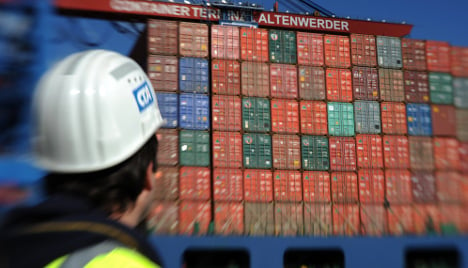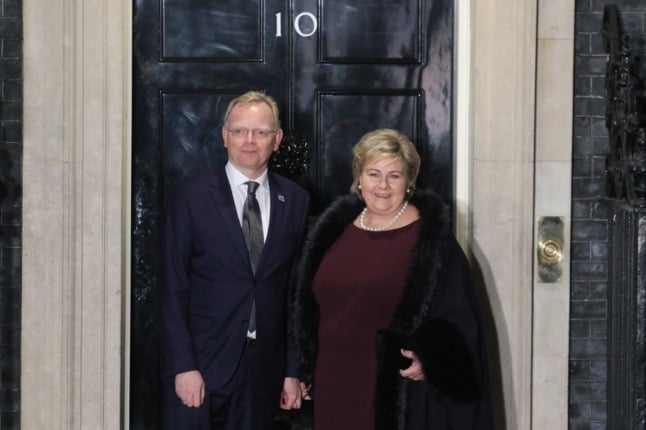TRADE
German firms hit 2.5-year confidence high
German business confidence hit the highest level for more than two and a half years in February, as the outlook for Europe's biggest economy continues to hold up, data showed on Monday.
Published: 24 February 2014 12:39 CET

Photo: DPA
The Ifo economic institute's closely watched business climate index climbed to 111.3 points this month, the highest level since July 2011. In January, the index had stood at 110.6 points.
"The German economy is holding its own in a changeable global climate," Ifo chief Hans-Werner Sinn said in a statement.
Ifo calculates its headline index on the basis of companies' assessments of their current business and the outlook for the next six months.
It rose to 114.4 points in February from 112.4 points in January.
"German businesses remain diehard optimists," said ING DiBa economist Carsten Brzeski.
Gross domestic product data for the fourth quarter came in better than expected and further positive hard data are set to follow, Brzeski said.
"Of course, there are also risks," the expert noted, pointing to an unexpected slowdown, further emerging market turmoil and a Chinese hard landing.
But such concerns should disappear quickly, Brzeski believed.
Nataxis economist Johannes Gareis, too, felt that "all in all the German business climate remains more than upbeat, suggesting that Germany's business sector is on a growth course heading into 2014."
But Capital Economics economist Jonathan Loynes was more cautious.
"The survey has been consistently over-optimistic relative to the hard data over the last year or so, so its implications for growth should not be interpreted too literally," he said.
"Overall, the Ifo survey supports the broader evidence suggesting that the German economy is expanding at a steady but unspectacular pace," Loynes argued.
Berenberg Bank economist Christian Schulz said that despite its apparent strength, the German economy "is not completely immune to the emerging market turbulences."
But "fortunately, Germany can rely on domestic demand as the key driver of growth at the current stage of the cycle. Private investment is rebounding after a long period of decline. And the Ifo index reassuringly points to strength in another key component of domestic demand, namely consumption," he said.
SEE ALSO: Foreign investment floods into Germany
Url copied to clipboard!


 Please whitelist us to continue reading.
Please whitelist us to continue reading.
Member comments